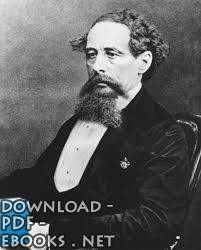📘 قراءة كتاب The Development of English Literature (Summary)pdf أونلاين


) Old English, Middle English and Chaucer Old English English, as we know it, descends from the language spoken by the north Germanic tribes who settled in England from the 5th century A.D. onwards. They had no writing (except runes, used as charms) until they learned the Latin alphabet from Roman missionaries. The earliest written works in Old English (as their language is now known to scholars) were probably composed orally at first, and may have been passed on from speaker to speaker before being written. We know the names of some of the later writers (Cædmon, Ælfric and King Alfred) but most writing is anonymous. Old English literature is mostly chronicle and poetry - lyric, descriptive but chiefly narrative or epic. Middle English and Chaucer From 1066 onwards, the language is known to scholars as Middle English. Ideas and themes from French and Celtic literature appear in English writing at about this time, but the first great name in English literature is that of Geoffrey Chaucer (?1343-1400). Chaucer introduces the iambic pentameter line, the rhyming couplet and other rhymes used in Italian poetry (a language in which rhyming is arguably much easier than in English, thanks to the frequency of terminal vowels). Some of Chaucer's work is prose and some is lyric poetry, but his greatest work is mostly narrative poetry, which we find in Troilus and Criseyde and The Canterbury Tales. Other notable mediaeval works are the anonymous Pearl and Gawain and the Green Knight (probably by the same author) and William Langlands' Piers Plowman. Tudor lyric poetry Modern lyric poetry in English begins in the early 16th century with the work of Sir Thomas Wyatt (1503-1542) and Henry Howard, Earl of Surrey (1517-1547). Wyatt, who is greatly influenced by the Italian, Francesco Petrarca (Petrarch) introduces the sonnet and a range of short lyrics to English, while Surrey (as he is known) develops unrhymed pentameters (or blank verse) thus inventing the verse form which will be of great use to contemporary dramatists. A flowering of lyric poetry in the reign of Elizabeth comes with such writers as Sir Philip Sidney (1554-1586), Edmund Spenser (1552-1599), Sir Walter Raleigh (1552-1618), Christopher Marlowe (1564-1593) and William Shakespeare (1564-1616). The major works of the time are Spenser's Faerie Queene, Sidney's Astrophil and Stella and Shakespeare's sonnets.
حجم الكتاب عند التحميل : 35.9 كيلوبايت .
نوع الكتاب : pdf.
عداد القراءة:
اذا اعجبك الكتاب فضلاً اضغط على أعجبني و يمكنك تحميله من هنا:

شكرًا لمساهمتكم
شكراً لمساهمتكم معنا في الإرتقاء بمستوى المكتبة ، يمكنكم االتبليغ عن اخطاء او سوء اختيار للكتب وتصنيفها ومحتواها ، أو كتاب يُمنع نشره ، او محمي بحقوق طبع ونشر ، فضلاً قم بالتبليغ عن الكتاب المُخالف:
 قبل تحميل الكتاب ..
قبل تحميل الكتاب ..
يجب ان يتوفر لديكم برنامج تشغيل وقراءة ملفات pdf
يمكن تحميلة من هنا 'http://get.adobe.com/reader/'


 منصّة المكتبة
منصّة المكتبة